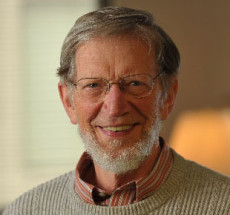
I finished [Michael Allen] Gillespie's The Theological Origins of ModernityFrom his blog review, Against the Grain, Christopher quotes the fundamental thesis of Gillespie from the book:last night. It was overall a very enjoyable read.
He turns the conventional reading of the Enlightenment (as reason overcoming religion) on its head by explaining how the humanism of Petrarch, the free-will debate between Luther and Erasmus, the scientific forays of Francis Bacon, the epistemological debate between Descarte and Hobbes, were all motivated by an underlying wrestling with the questions posed by nominalism, which dismantled the rational God-and-universe of scholasticism and introduced (by the Franciscans) a fideistic God-of-pure-will born of their concern that anything less than such would jeopardize God's omnipotence -- subsequent intellectual history is in Gillespie's reading a grappling with the questions of free will and divine determinism; Protestantism involved at its core fidiestic, denying of free will will in order to preserve God's absolute power. However, this in turn culminated in an ambivalence about salvation. If God simply wills whom to save, human action then has no real merit or significance (Luther's "sin boldly"). Gillespie's chapter on the Erasmus-Luther was among the most interesting in bringing this out. Also fascinating was his discussion of Descartes and Hobbes -- the latter usually depicted as an atheist and his philosophy as chiefly political -- as sincerely religious, and revealing the underlying metaphysical concerns behind his thought. And so Gillespie says, even in modern times, we are bequeathed with a similar wrestling with modernity's political ambitions to increasing freedom and the inability to reconcile this with science's inherent determinist worldview. Likewise, in the post-9/11/ confrontation with Islam (which makes a brief appearance at the end) we are again confronted with the pure will and absolutism of Islam which sees the West's assertion of "individual autonomy" / free will as a challenge to God's omnipotence, for whom our only response is obedience.
...the apparent rejection or disappearance of religion and theology in fact conceals the continuing relevance of theological issues and commitments for the modern age. Viewed from this perspective, the process of secularization or disenchantment that has come to be seen as identical with modernity was in fact something different than it seemed, not the crushing victory of reason over infamy, to use Voltaire’s famous term, not the long drawn out death of God that Nietzsche proclaimed, and not the evermore distant withdrawal of the deus absconditus Heidegger points to, but the gradual transference of divine attributes to human beings (an infinite human will), the natural world (universal mechanical causality), social forces (the general will, the hidden hand), and history (the idea of progress, dialectical development, the cunning of reason)....Christopher cites Lee Trepanier's concise summary of the intellectual path Gillespie takes to demonstrate his thesis (University Bookman), delving into the thought of Petrarch and the significance of the debates between Luther and Erasmus, Descartes and Hobbes as they grappled with the theologic implications of nominalism.
That the deemphasis, disappearance, and death of God should bring about a change in our understanding of man and nature is hardly surprising. Modernity ... originates out of a series of attempts to construct a coherent metaphysic specialis on a nominalist foundation, to reconstitute something like the comprehensive summalogical account of scholastic realism. The successful completion of this project was rendered problematic by the real ontological differences between an infinite (and radically omnipotent) God and his finite creation (including both man and nature).
Apart from finding the last chapter "a bit rushed and inconclusive" (the post-9/11 spectre of Islam makes a cursory appearance at the end, but isn't adequately elaborated), he calls Gillespie's revisionist intellectual history of modernity and "immensely informative" and "provocative challenge to the conventional, secular reading of history." Sounds interesting. Read more on Christopher's blog >>


 David J. Theroux, "
David J. Theroux, "